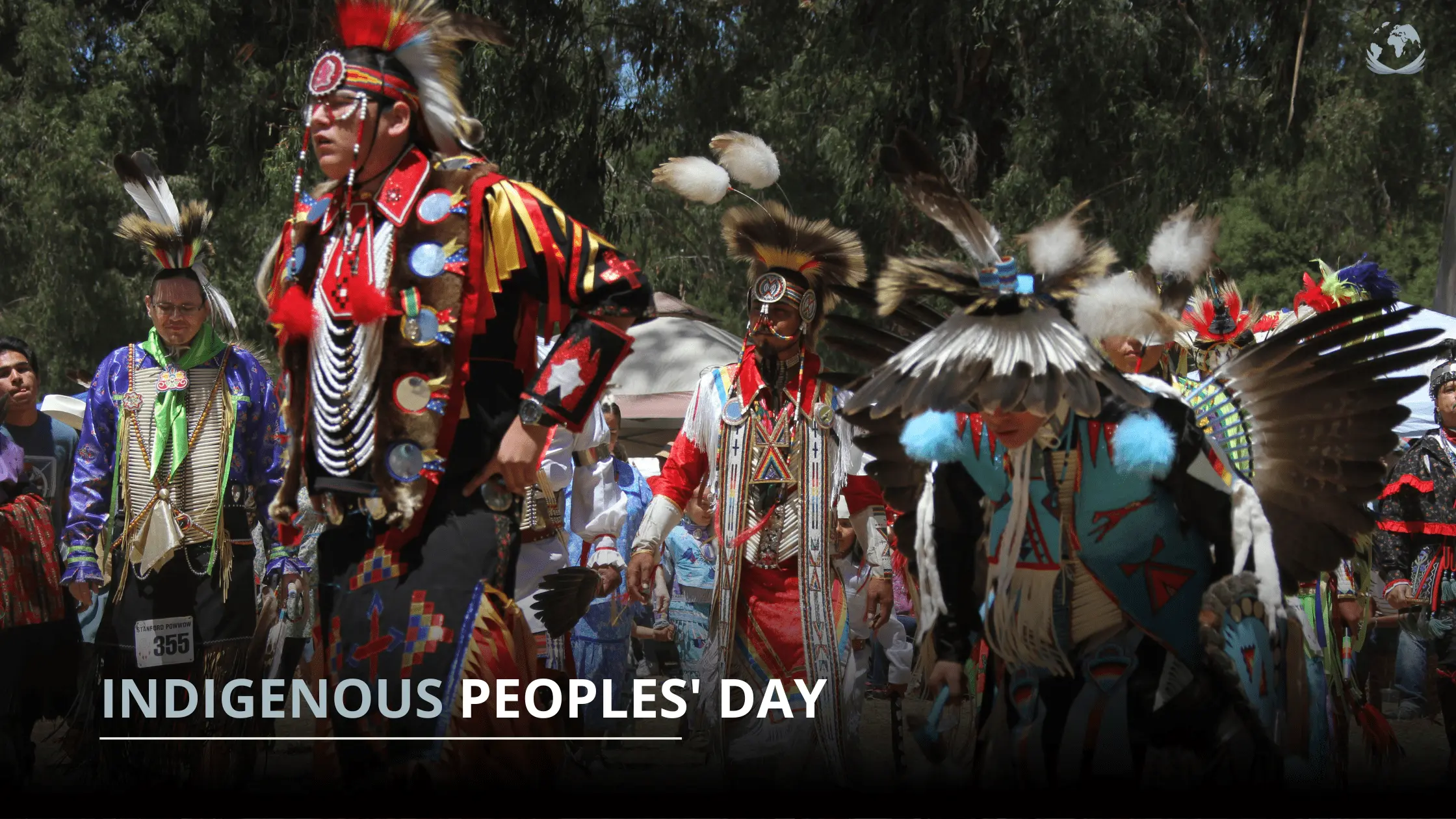Honoring Heritage on Indigenous Peoples’ Day
When is Indigenous Peoples’ Day and what is this new holiday?
Indigenous Peoples’ Day 2023, in the United States is celebrated on Monday, October 9. It is celebrated every year on the second Monday of October. This is a celebration that is close to the heart of History Chip and we are so excited to be honoring this Federal holiday in the United States, newly minted in 2021,. At History Chip, our mission is to include the legacy of all people and actively open our online doors to groups whose stories are not fully represented in history. We know there are some who are sad to say good-bye to Columbus Day, but, at History Chip, all of us find it exciting to have a United States holiday dedicated to its Indigenous Peoples. Their history and contribution to the culture of the United States and to the rest of the world deserves reverence and recognition. The rich cultures of the many Native Tribes are vast and varied. Their history since the invasion of white settlers has been a history of heartache and annihilation. Their story is no less of an atrocity than that of Russia’s invasion of the Ukraine. Their stories need to be told. Their cultures need to be revered.
The U.S. has reminders and tributes everywhere of our Indigenous roots. 26 of the 50 states have names that are Native or have Native roots. Many of our rivers and mountains were also given Native names. These are names that reflect the land or the character of the place, not a human name. For Native cultures to name these natural treasures for a person would limit its grandeur. We romanticize our Native people even as we have removed them from their traditional lands and worked to eliminate their cultures. I remember as a child growing up in Virginia being fascinated with the stories of Pocahontas and the people of the Powhatan Chiefdom. I spent hours wandering the forest near my home imagining Indians walking the same trails. I tried to walk without making a sound as I had heard the Native People were capable of doing, careful not to step on a brittle twig or dried leaf for fear that they would snap under foot, alerting prey or foe.
And as the names of rivers and states help build a legacy and add romance to our understanding of the Native Peoples of North America, Indigenous People are in need of more. They need the kind of recognition that changes lives, augments their circumstances and raises awareness of their dignity, their challenges, the richness of their cultures and their history. While establishing Indigenous Peoples’ Day as a National holiday is a great step it is only a first step. A defeated nation’s legacy infects its people for generations and it is incumbent upon the U.S. to play a decisive role in restoring and supporting the dignity and glory of our Native peoples.
On October 08, 2021, President Biden issued, “A Proclamation on Indigenous Peoples’ Day, 2021” which states,
Since time immemorial, American Indians, Alaska Natives, and Native Hawaiians have built vibrant and diverse cultures — safeguarding land, language, spirit, knowledge, and tradition across the generations. On Indigenous Peoples’ Day, our Nation celebrates the invaluable contributions and resilience of Indigenous peoples, recognizes their inherent sovereignty, and commits to honoring the Federal Government’s trust and treaty obligations to Tribal Nations.
This goes on to say,
Our country was conceived on a promise of equality and opportunity for all people — a promise that, despite the extraordinary progress we have made through the years, we have never fully lived up to. That is especially true when it comes to upholding the rights and dignity of the Indigenous people who were here long before colonization of the Americas began. For generations, Federal policies systematically sought to assimilate and displace Native people and eradicate Native cultures. Today, we recognize Indigenous peoples’ resilience and strength as well as the immeasurable positive impact that they have made on every aspect of American society. We also recommit to supporting a new, brighter future of promise and equity for Tribal Nations — a future grounded in Tribal sovereignty and respect for the human rights of Indigenous people in the Americas and around the world.
And so, again, what is Indigenous Peoples’ Day?
It is a promise to Indigenous people in the U.S. and elsewhere of awareness and honor for their cultures and their lives. Although we know that promises to Indigenous people have been broken repeatedly, this promise is very public and with the yearly commemoration of Indigenous Peoples with a national holiday, there is the opportunity to recognize our obligations and debts to our Indigenous Peoples. National holidays have a way of crystallizing our awareness. Media coverage, school projects focused on Indigenous Peoples, parades, etc., all offer the chance to bring long needed nobility and admiration to Native Peoples in the U.S. This sort of attention and renewed awareness of the Indigenous Peoples, the beauty of their cultures, our own proximity to their cultures and our shared love of this continent, make us all the richer for their presence in our past and our present. Indigenous lives and culture are not separate from our own. Their culture is our legacy. We drove them from their land but we have held dearly to much that was beautiful in their culture. There is a romance of Indigenous culture that we have long held and cherished, even as we sought to annihilate their populations. With this holiday we have the opportunity, no, the mandate, to embrace and celebrate those cultures. Moreover, we have the opportunity to raise their standing. Native tribes should live as cherished antecedents to a great and prosperous beacon of democracy and compassion. Our Native peoples should be honored, celebrated, revered and held in the highest esteem as keepers of our national treasure, people who preserve the land, and maintain rich and varied societies.
It has taken the U.S. a while to catch up. In 1994, the United Nations established the International Day of the World’s Indigenous People to be observed annually on 9 August. And this is not just an important gesture. This is a crucial acknowledgment that all people have value, that Indigenous Peoples around the world have developed significant and startling cultural and societal traditions, art forms and ways of life that have so much to teach the rest of us. Although the history of Indigenous Peoples’ Day in the U.S. has been short, it holds promise beyond its age.
All of us at History Chip wish Indigenous People a Happy Indigenous Peoples' Day. We are excited to honor the beauty and traditions of the Native Peoples of North America. We encourage you to share your stories. We are pleased to provide a platform where your stories are cherished and preserved.

